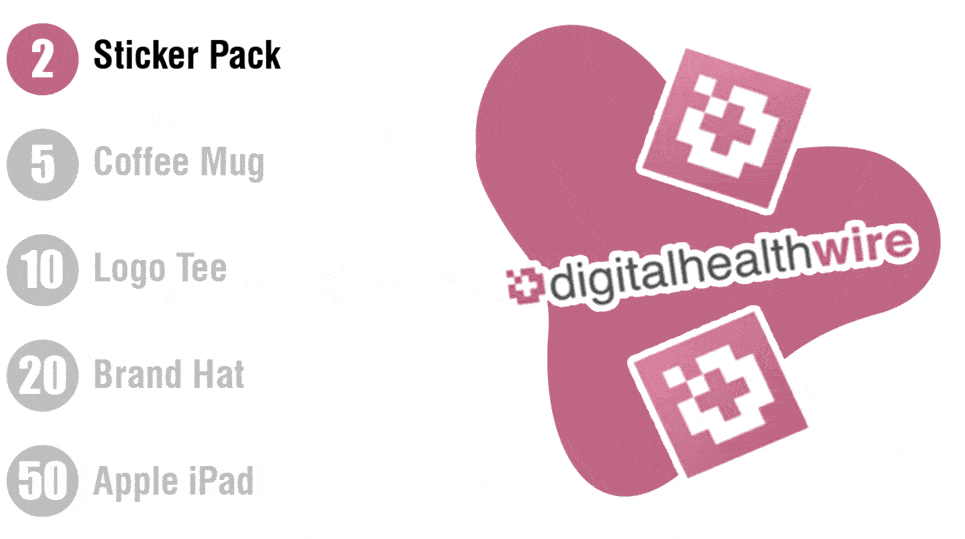|
MA Favorable Selection | MindMaze Acquires Babylon
June 26, 2023
|
|
|

|
|
Together with
|

|
|
|
“The current issues with healthcare systems around the world will progressively worsen as populations age and costs rise if we do not take responsibility for bringing AI into patient care. A better, AI-powered future of healthcare is not ten or even five years down the road – it is right now, and it is the responsibility of all in healthcare to make this a reality for our patients.”
|
|
Mayo Clinic CEO Gianrico Farrugia, MD
|
|

|
|
Medicare Advantage plans could be on track to reach over $75B in overpayments this year – nearly 3x prior estimates – causing researchers at the USC Schaeffer Center for Health Policy and Economics to issue a pressing call for policy reform.
The USC study found that traditional fee-for-service Medicare beneficiaries with lower-than-average expenditures are significantly more likely to switch to Medicare Advantage plans. Favorable selection at its finest.
- For context, CMS sets MA rates based on the county-level expenditures of those in traditional FFS Medicare, and they’re intended for beneficiaries with average expenditures – not systematically below average.
- As a result, risk-adjusted expenditures for the 16.9M new MA beneficiaries who made the switch from traditional Medicare between 2006 and 2019 were substantially below average, causing large overpayments due to the favorable selection effect.
This pattern of favorable selection more than doubles the $27B (6%) overpayment estimate from MedPAC for 2023, which primarily reflected “coding intensity” ($23B) and Star Rating (quality) bonuses, but didn’t include an adjustment for selection bias.
- The researchers estimate that favorable selection alone could cause overpayments to the tune of 14.4%, which would surpass $75B when combined with MedPAC’s estimate of other factors.
The authors propose two potential strategies for improving the accuracy of MA rates:
- Reform the current approach of linking MA rates to average expenditures of traditional Medicare beneficiaries by including measures to reduce the impact of aggressive coding and mandating new data reporting requirements to improve comparability.
- Abandon the current approach and institute competitive bidding by MA plans to let market forces determine rates with the aim of capturing efficiency gains for taxpayers instead of increasing revenue for MA plans.
The Takeaway
Medicare Advantage enrollment has been skyrocketing over the past decade, and over half of all eligible beneficiaries are now enrolled in a private plan. As traditional Medicare enrollment continues to decline, basing MA rates on FFS expenditures will only grow increasingly problematic, and this study does a great job underscoring the need for some serious reform.
|




|
|
Medallion Unites Family Care Center’s Credentialing Process
As Family Care Center set out to expand its behavioral health services, it needed a scalable provider credentialing solution so that its staff could keep focusing on patient care. Find out how Medallion’s CAQH-integrated platform helped Family Care Center onboard its providers faster by letting them complete their applications in two days instead of two weeks.
|
|
Clear Arch Health Reduces Readmissions at Altru
When Altru Health System set out to reduce hospital readmissions, it turned to Clear Arch Health to find the solution. Learn how Clear Arch Health’s complete RPM platform and clinical monitoring system helped Altru lower readmissions while improving post-acute care quality.
|
|
Save Time & Minimize Risk with connectRN
connectRN takes the work out of hiring at scale. connectRN’s W2 staffing solution protects you and your business from liability. Plus, their credentialing team handles everything from state licensure to background checks, and you’ll have access to it all via their user-friendly platform. Learn more.
|
|
- MindMaze Acquires Babylon: Babylon financier AlbaCore Capital reached an agreement to have digital-neurotherapeutics company MindMaze acquire all of Babylon’s business assets and debt in a take-private transaction. MindMaze has raised a total of $341M to develop mixed reality digital therapeutics that help patients recover from neurodegenerative diseases. At first-glance Babylon seems like an odd addition to the MindMaze portfolio, but both companies plan on focusing on their independent operations before aligning their strengths over the “mid-to-long-term” as MindMize moves beyond neurological conditions.
- Health Coverage Hurdles Persist: A KFF survey (N=3,605) revealed that over half of Americans (58%) experienced at least one issue with their health plan over the past year. Common challenges ranged from provider network issues to prior authorization troubles, while four-in-ten adults reported skipping or delaying care due to cost. Nearly half of those who faced challenges were unable to “satisfactorily resolve” them, with 28% facing higher costs than expected, 17% unable to receive the recommended care, and 15% seeing their health worsen as a result.
- CMS Proposes New Breakthrough Device Pathway: FDA-cleared “breakthrough devices” could soon have a quicker path to reimbursement following the CMS’ proposal of a Transitional Coverage for Emerging Technologies (TCET) pathway. The voluntary TCET pathway would give device makers access to CMS officials prior to FDA market authorization to review early evidence, help design studies to address payor concerns, and offer guidance on the best existing coverage areas. The goal is to finalize coverage within six months of FDA clearance.
- Outbound AI Raises $16M: The generative AI funding train is rocketing along with Outbound AI’s $16M seed round to expand the reach of its virtual agents optimized for back-end functions such as rev cycle management. Outbound’s virtual agents scale with demand to accommodate any volume, allowing medical staff to get more high-value work done by offloading rote tasks such as eligibility / benefits verification, claims status, and prior authorization.
- Only 46% of PCPs Participate in VBC: The Commonwealth Fund found that only 46% of primary care practices generate revenue from value-based care models, based on a survey of 1k U.S. physicians. Forty-four percent of PCPs said their practice receives fee-for-service revenue that isn’t linked to care quality, while 30% participate in shared savings models and 32% participate in capitation- or population-based models. Practices with five or more physicians or in suburban/urban areas were more likely to participate in VBC.
- Embracing Healthcare’s AI Future: Mayo Clinic CEO Gianrico Farrugia, MD penned an excellent piece for the Milken Institute on how AI shouldn’t be looked at as a panacea to healthcare’s structural problems, but as a way to help transform our current pipeline model to a platform model. A platform model not only allows providers, researchers, and partners to effortlessly collaborate, but it also enables the tools within it to “scale, adapt, and flourish” alongside the model itself.
- Do Emojis Help Physicians Communicate?: A recent JAMA study suggests that emojis are “crucial in professional medical communication.” After analyzing 1,319 clinical text message threads from hospitalists, researchers found that 7% contained emojis, which primarily added emotional content (61%) or facilitated opening, maintaining, or closing communication channels (32%). About 70% of emoji use was positive, and no evidence was found that emojis caused confusion or were seen as inappropriate.
- Amazon Generative AI Innovation Center: Amazon is investing $100M in a new Generative AI Innovation Center that connects AWS experts with its cloud clients to help bring their ideas to market faster. The Generative AI Innovation Center will support companies with everything from ideation to deployment, allowing them to leverage Amazon’s Titan foundation models and AWS hardware for model training. All industries are welcome, although AWS specifically mentions accelerating drug discovery as a potential use case.
- Lab Grown Meat Approved in U.S.: Although not quite the type of digital health news we usually cover, “no kill” meat grown from animal cells just reached a major milestone after the USDA issued its first-ever clearances for lab-cultivated meat to be marketed in the U.S. Cultivated chicken products from both GOOD Meat and UPSIDE Food were issued USDA “grants of inspection” following earlier greenlights from the FDA, but it’s looking like cost parity is still “a major challenge” and high-end restaurants will see the products before the supermarket aisle.
- Nonprofit Hospitals Cut Charity Care: Nonprofit hospitals are facing growing criticism for cutting corners on charity care while recording growth in operating profits. A study in Health Affairs found that average operating profits at nonprofit hospitals grew from $43M to $59M between 2012 and 2019, while reserves increased 68% from $133M to $224M. Over the same period, nonprofit hospital spending charity care declined from $6.7M to $6.4M.
- Qardio Launches Livestream ECG: Virtual patient monitoring startup Qardio unveiled its Livestream ECG solution suite, which provides remote care clinicians and their patients real-time continuous ECG and blood pressure monitoring along with a broad range of other metrics (pulse oximetry, body temp, weight, and body positioning). Qardio specifically highlighted how its real-time ECG readings extend beyond 30 seconds and how its QardioCore technology allows patients to take ECG readings without shaving or adhesive patches.
|
|
Selecting Your Drug Database and CDS Solution
Do your providers need easy access to real-time drug knowledge and clinical decision support? Explore Synapse Medicine’s complete guide to drug database advantages, use cases, challenges, and factors to consider when selecting the right solution for your organization.
|
|
Better Diabetes Management With Glooko
Glooko’s diabetes management platform transforms the way patients connect with their providers, driving better engagement, adherence, and ultimately outcomes. Take a look at Glooko’s latest clinical studies to see how their platform is driving sustained improvements for people with diabetes.
|
|
Creating an Exceptional Engagement Experience
With a surge in experience‑oriented disruptors entering the healthcare industry, patient engagement is becoming a crucial competitive differentiator. Get your copy of Nuance’s guide to delivering intelligent interactions and a better experience at every touchpoint.
|
|
|
Share Digital Health Wire
|
|
Spread the news & help us grow ⚡
|
|
Refer colleagues with your unique link and earn rewards.
|

|
|
|
|
Or copy and share your custom referral link: *|SHAREURL|*
|
|
You currently have *|REFERRALS|* referrals.
|
|
|
|
|